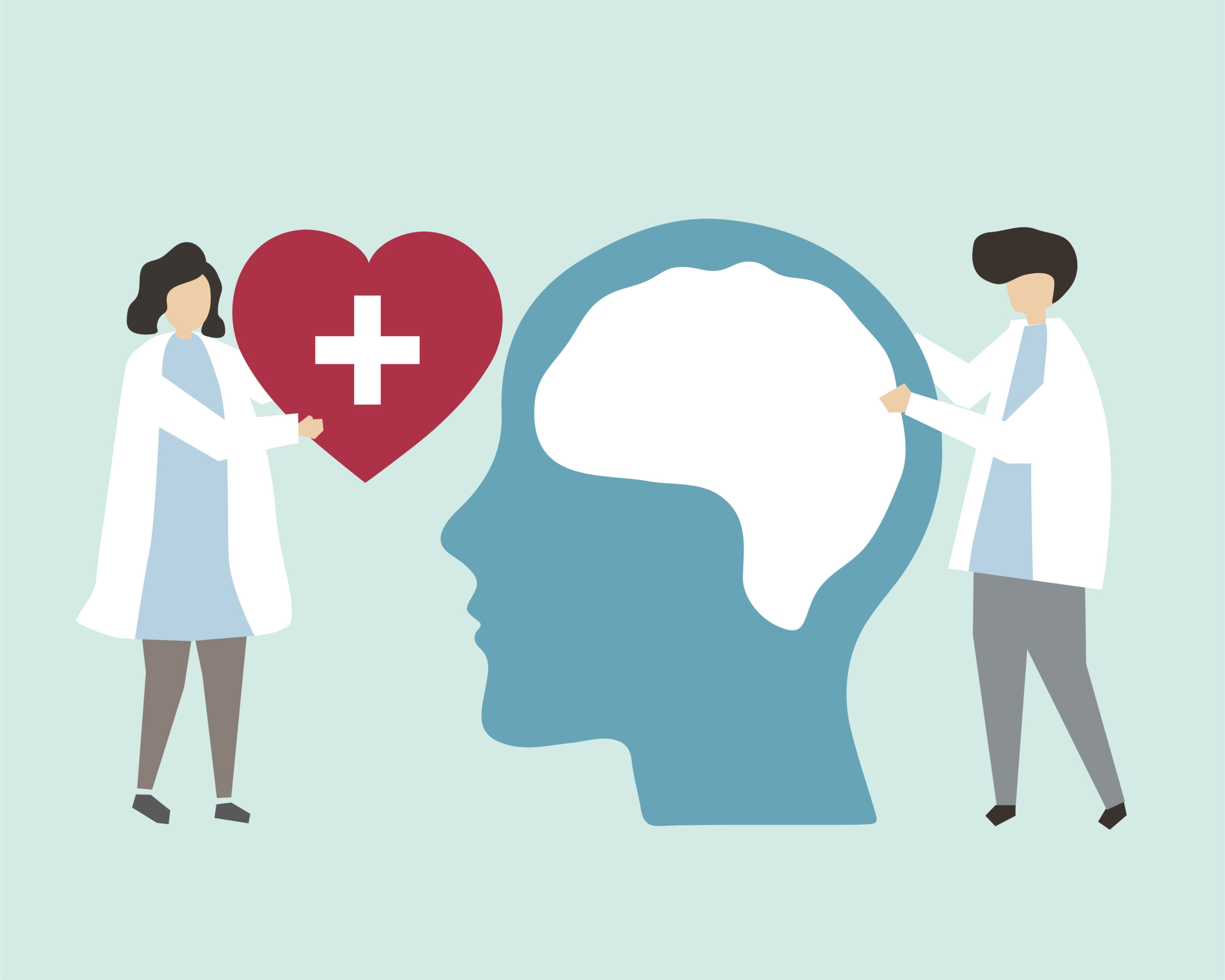
Do depression, anxiety and other mental health issues impact the cardiovascular system? Or is it the other way around?
When the mind is not in optimum health, it is said to affect the heart, and vice versa. This symbiotic relationship is no longer just conjecture since the past few decades have shown it to be about hard facts.
“When you experience depression, anxiety or stress, your heart rate and blood pressure rise, there’s reduced blood flow to the heart and your body produces higher levels of cortisol, a stress hormone,” says Dr Manish Aggarwal, senior consultant and head, interventional cardiology, PSRI Hospital, New Delhi. “Over time, these effects can lead to heart disease. Depression and anxiety can also develop after cardiac events, including heart failure, stroke and heart attack. When people are stressed, anxious or depressed, they may feel overwhelmed, so they are not apt to make healthy lifestyle choices. This can increase the risk for heart disease.”
READ MORE :
A chocolate a day to keep the doctor away?
High cholesterol can show up on the skin
Heart attack vs cardiac arrest
Belly fat can ‘break’ your heart
Mind, heart and body connection
According to a 2021 article in Psychiatric Times, a person’s mind, heart and body are all interconnected and interdependent in what can be called the mind-heart-body connection. It elaborates that the scales weigh heavily towards research that says negative psychological factors, personality traits and mental health disorders can adversely impact cardiovascular health.
Science has known about the interdependence between the heart and emotional issues for years, but now the link is clearer. The causes of this connection between cardiac patients suffering from depression and anxiety and adults with mental issues going on to develop cardiac complications are unfurling in many eye-opening studies.
A study by the National Heart, Lung, and Blood Institute, Maryland, US, quotes Jesse C Stewart, an associate professor of psychology in the School of Science at Indiana University-Purdue University Indianapolis, as saying in a 2014 paper, “Thirty years of epidemiological data indicate that depression does predict the development of heart disease.” The study suggests that initial treatment for depression, before the development of symptomatic cardiovascular disease, could decrease the risk of heart attacks and strokes by almost half.
Link between mental health and cardiac health
There is more evidence that the workings of the mind can indeed influence the heart.
“Mental health and cardiac health have a symbiotic relationship,” says Dr Girishchandra, senior consultant, psychiatry, Aster CMI Hospital, Bengaluru. “People who suffer from cardiac problems experience more mental health problems like depression and anxiety and vice versa. The speed and level of improvement in cardiac patients with comorbid depression and anxiety is poor if mental health problems are not actively addressed.
“The hormonal and neurochemical changes during any serious health problem contribute to worsening of mental health problems. Comprehensive care for cardiac patients should involve care for mental health in the initial stages. The plan should involve ongoing support from mental health professionals during the follow-up as well. Not just acute intervention and medications, lifestyle changes are essential to achieve the best outcome.”
One large study published in June 2019 in BMJ Open showed that adults aged 40 to 80 with depression have an increased risk of atherosclerosis-related cardiovascular disease.
Atherosclerosis affects arteries, which are responsible for transporting oxygen-rich blood from the heart to the rest of the body. Over time, as people age, their arteries gradually stiffen, and plaque accumulates along the walls of the arteries. Arterial stiffness and plaque build-up make it too difficult for blood to flow normally through the arteries and raises the risk of a heart attack or stroke.
How healthy habits can help
“I suffered a mild stroke a few years ago and after that I found it hard to come to terms with my changed lifestyle and always living with the fear that it could happen again,” says Neeru Dhar, 39, an IT professional in Gurugram, Haryana. “I sank into depression and that made it harder for me to deal with my new health issues. Luckily my family got me into therapy and, though it took some time, I’m much better equipped to deal with this life change now.”
Dr Aggarwal of PSRI Hospital, New Delhi, says people struggling with emotional issues that can ultimately affect their heart or vice versa can keep three things in mind:
- Recognise the problem, identify it. Support of family and friends is essential here. And seek therapy without delay.
- With your doctor’s advice, start focusing on healthy habits and a healthy lifestyle. It is not easy but with small steps, one can find it slowly getting easier.
- Focus on self-care because that is the only thing that can combat a situation like this. Try to get into some structured fitness and feel-good routine that works for you. It could be anything or even hobbies that gave you joy once before. It can work wonders.

















